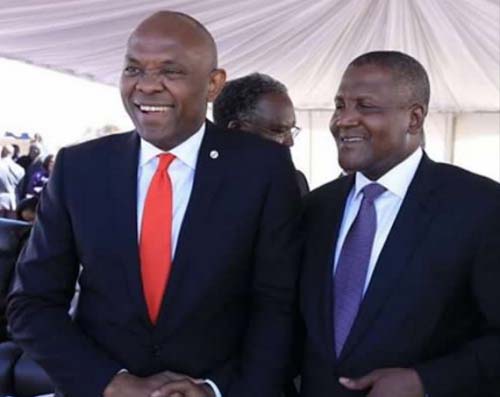As part of the drive to eradicate malaria in Nigeria, the Federal Government has enlisted the support of prominent business leaders.
The government said Aliko Dangote, Chairman of Dangote Group, Tony Elumelu, Chairman of Heirs Holdings, and Femi Otedola, Chairman of Geregu Power Plc, will lead the charge against the disease.
Dr Tunji Alausa, Minister of State for Health and Social Welfare, inaugurated the Nigeria End Malaria Council on Friday in Abuja.
Alausa said that the industry heavyweights, would collaborate with the Nigerian Governors’ Forum (NGF), National Assembly joint Health Committees and women’s organisations.
He said that they have been tasked with task of reducing, and potentially eliminating the malaria scourge in the country.
The minister emphasised the urgency of addressing malaria prevalence in the country, which led to the establishment of the council,
According to him, the disease’s prevalence country makes it urgently expedient to explore every option available to address it.
“The Nigeria End Malaria Council was established on Aug. 16, 2017 by former President Muhammadu Buhari.
“Its primary objectives are to keep malaria high on national and state agendas, and secure strong political commitment from leaders.
READ ALSO:Justice Kudirat Kekere-Ekun’s appointment, well deserved-Sanwo-Olu
READ ALSO:Gov Abiodun flags-off re-construction of 70km Abeokuta-Ota-Lagos expressway
it us also to mobilise resources, particularly from the private sector, to close resource gaps in the national malaria strategic plan,” he said. .
He said that the council had been unable to meet since 2022 due to the change in government and other operational challenges, adding that the Secretariat, however, remained functional.
He said that the country contributes over a quarter of global malaria cases and about a third of the more than 600,000 malaria deaths worldwide, mostly affecting children and pregnant women.
“It is sad to note that malaria contributes about 25 per cent to 30 per cent of childhood mortality and about 60 per cent of hospital attendance.
“Similarly, malaria is a major cause of absenteeism in schools, markets, and workplaces, as well as a significant out-of-pocket expense for most households in the country,” he said.
He also recalled Nigeria’s involvement in the Ministerial Conference on Malaria in Yaoundé, Cameroon, where, alongside 10 other high-burden countries, it signed a Declaration to scale up interventions against malaria.
According to him, this was followed by the “Rethinking Malaria Elimination in Nigeria”.
It was a roundtable which brought together major stakeholders and global players to identify challenges and strategise on eliminating malaria.
Highlighting the enormity of the challenge, he said that Nigeria currently had a population of over 200 million, and the entire population is at risk of malaria.
“This puts a huge challenge on the Government and requires a different approach to tackle the disease,” he said.

